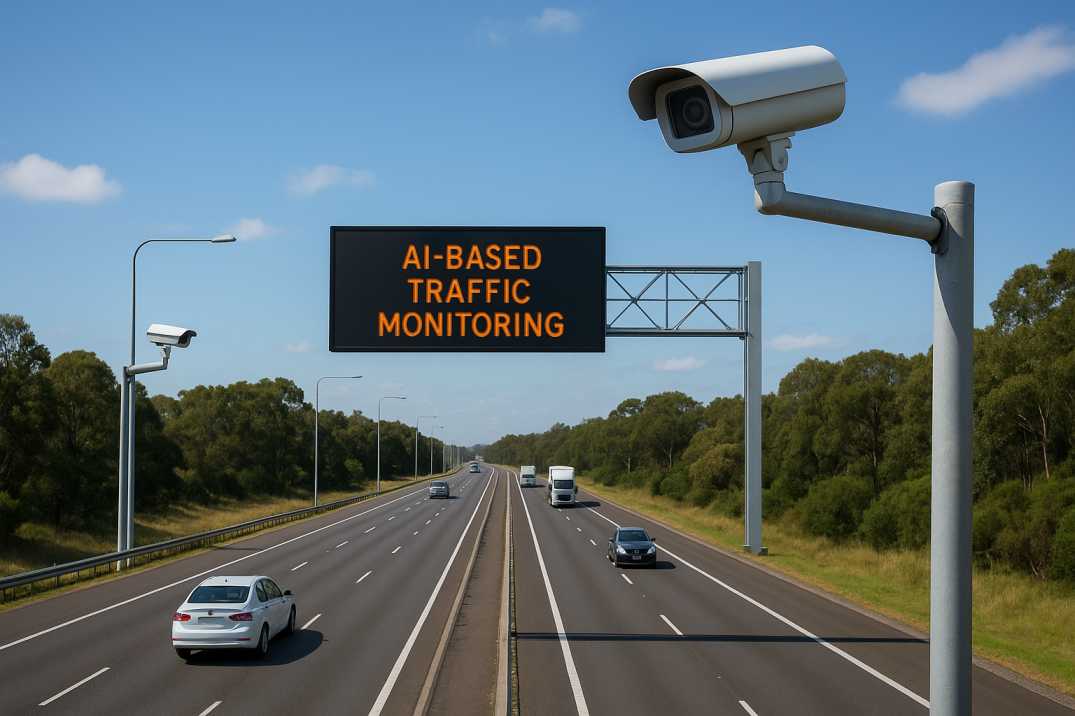As Australia moves toward intelligent infrastructure, AI-based traffic incident detection is transforming how authorities manage and monitor road networks. By integrating computer vision, machine learning, and digital traffic monitoring systems, road agencies can detect and respond to incidents in real time. These technologies are now essential for road asset management Australia — helping improve highway safety, optimize maintenance, and reduce congestion.

Australia’s vast highway network demands efficient systems that can handle traffic flow, safety, and maintenance simultaneously. Manual reporting or human monitoring often delays incident response. With AI, incidents like lane blockages, stalled vehicles, and accidents can be detected instantly through automated video analytics.
The result is faster response times, reduced secondary crashes, and enhanced roadway safety, aligning with Australia’s commitment to smarter, safer transport systems through AI-based traffic survey solutions and digital traffic monitoring tools.
Advanced AI-based traffic survey and monitoring technologies directly support road asset management Australia by providing accurate, data-driven insights on traffic density, incident frequency, and asset conditions.
When integrated with RoadVision AI, these systems automate the process of identifying and classifying incidents while feeding valuable data into asset performance dashboards. This helps authorities:
With digital systems in place, Australia’s transport agencies can maintain asset quality and performance across highways, regional roads, and critical corridors.
Modern automated traffic survey tools use real-time video and data analytics to detect and classify road events automatically.
These systems are capable of:
Such automation ensures reliable, 24×7 surveillance across extensive highway networks, with minimal human intervention.
AI enables detection within seconds, minimizing delays and preventing secondary accidents.
Coupled with road safety audit workflows, authorities can identify hazardous zones, enforce speed limits, and improve roadside visibility.
Incident data helps in planning better pavement condition surveys and scheduling maintenance to extend road life.
A unified traffic monitoring system provides live updates, performance analytics, and predictive insights for smarter network control.
Whether for city intersections or long highway stretches, digital AI traffic survey tools scale easily across different environments and traffic conditions.
Deploying an AI-based detection platform requires coordination between local authorities, infrastructure operators, and technology providers. Integration with automated road inventory inspection and pavement condition survey modules ensures a comprehensive understanding of both surface health and traffic movement.
RoadVision AI is revolutionizing roads AI and transforming infrastructure development and maintenance with its cutting-edge innovations in AI in roads. By leveraging Artificial Intelligence, digital twin technology, and advanced computer vision, the platform performs comprehensive road safety audits, enabling early detection of potholes and other surface issues for timely repairs and improved road conditions. The integration of pothole detection and data-driven insights through AI also enhances the accuracy of traffic surveys, helping address traffic congestion and optimize road usage. Focused on building smarter roads, RoadVision AI ensures full compliance with Austroads geometric design guidelines and IRC Codes, empowering engineers and stakeholders to reduce infrastructure costs, minimize risks, and improve road safety and transportation efficiency.
Once implemented, agencies can leverage analytics from RoadVision AI to improve safety outcomes, optimize resources, and enhance long-term planning.
The future of traffic monitoring in Australia is intelligent, automated, and data-driven. As part of modern road asset management Australia strategies, AI helps build sustainable, safe, and high-performing highway networks — a vital step toward smarter mobility infrastructure.
Book a demo with us to explore how AI-enabled road analytics and automated survey solutions can transform your traffic monitoring workflows. Book a demo with us.
Q1. How does AI detect incidents on Australian highways?
AI algorithms analyse real-time camera and sensor data to identify accidents, obstructions, or slowdowns — triggering instant alerts through a digital traffic monitoring system.
Q2. How does it improve road asset management Australia?
The system links incident data with pavement condition surveys and road inventory inspection data, supporting predictive maintenance and smarter investment planning.
Q3. Can RoadVision AI integrate traffic surveys and safety audits?
Yes, RoadVision AI unifies traffic surveys, road safety audits, and pavement condition surveys under one digital ecosystem.